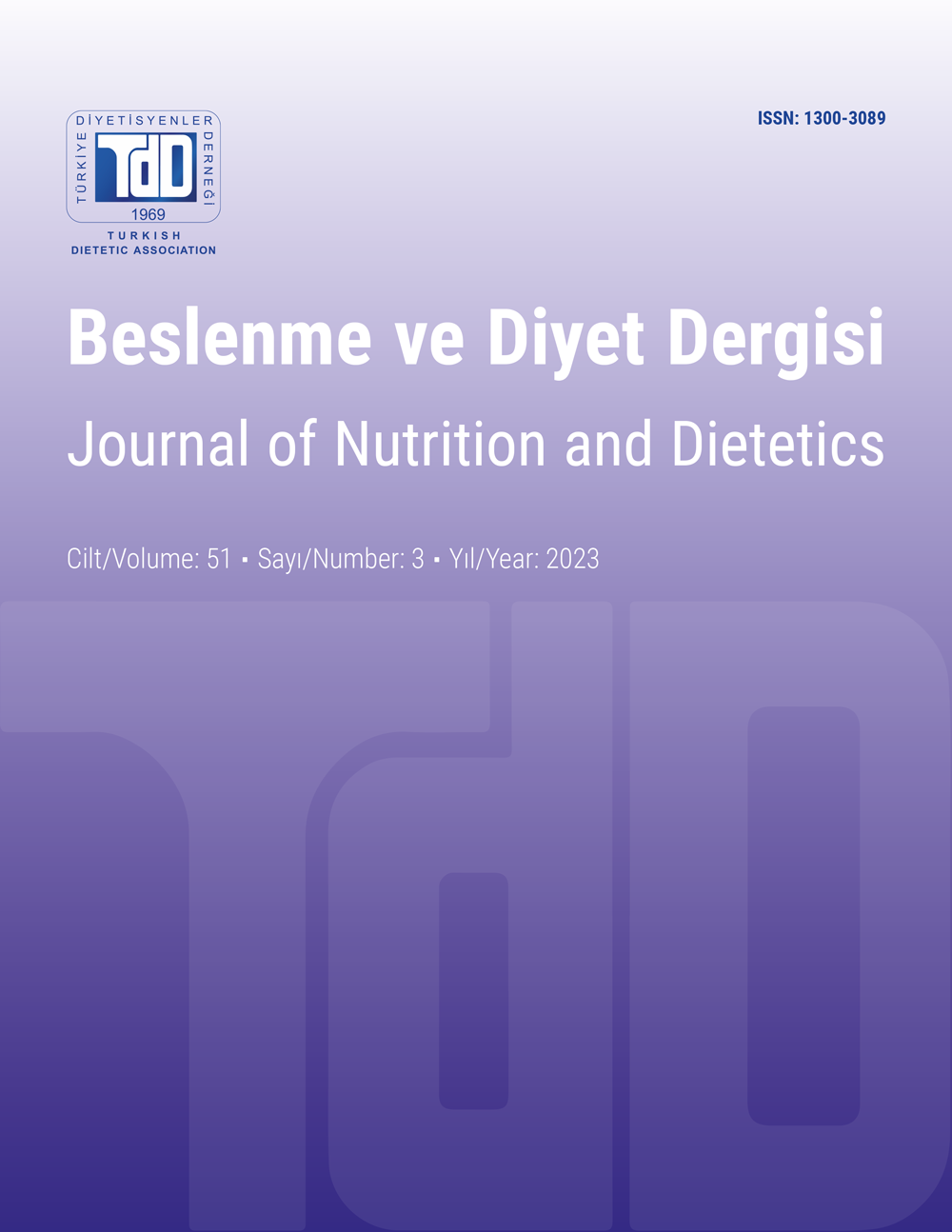Investigation of Factors Affecting Emotional Eating Status in University Students
DOI:
https://doi.org/10.33076/2023.BDD.1803Keywords:
Eating habits, Emotional eating scale, university studentsAbstract
Aim: University students’ eating habits are significantly impacted by changing environmental factors, and these students may exhibit emotional eating tendencies. This study aims to investigate the presence of emotional eating among university students and the factors affecting it.
Subjects and Method: 310 university students, ages 18 to 40, who were divided into 205 female and 105 male participants in this cross-sectional descriptive study. The students completed an online questionnaire that questioned about their sociodemographic characteristics, eating behaviors, and Emotional Eating Scale (EES). Participants were considered to have a tendency toward emotional eating if their score was higher than 75 as EES’s cut-off point.
Results: A statistically significant difference was determined between emotional eating tendency status, gender and BMI group. The female students’ total scores of “eating in tension”, “eating in adverse situations”, “control in the face of stimulus” and EES were higher than male students (p<0.05). It was determined that female gender was a positive predictor of eating in tension (β=0.309, p<0.001), eating in negative situations (β=0.272, p<0.001) and control in response to stimulus (β=0.168, p<0.05). Dieting is a positive predictor of eating in stressful situations (β=0.114, p<0.05) and eating in negative situations (β=0.150, p<0.05).
Conclusion: Gender, BMI, and dieting were found to be important predictors of emotional eating in this study, which looked at the factors influencing emotional eating.

